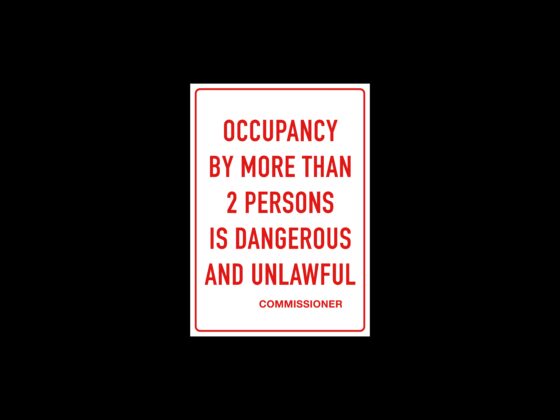It’s a must-read for any hotelier and will set you on the way to a remarkable 2025. This article covers the key insights and trends from the report, so that you can get thinking about how to thrive in the year ahead.
Reflecting on 2024: a year of resilience and recovery
2024 saw a stabilization of the industry, with RevPAR growing by 3% to 4% and occupancy rates nearing pre-pandemic levels. However, hospitality’s recovery has been shaped by persistent global uncertainties: ongoing geopolitical conflicts, extreme weather events and shifting political landscapes. Amid these challenges, hoteliers have shown remarkable resilience, setting the stage for strategic, long-term planning in 2025.
Four big bets for 2025
1. AI will make captured data actionable
For years, hotels have collected vast amounts of data about their guests but struggled to apply it effectively. In 2025, artificial intelligence (AI) will revolutionize this process, transforming unstructured data into actionable insights to enhance guest experiences.
AI’s potential lies in its ability to synthesize data from disparate systems – booking platforms, guest reviews and distribution channels – to provide hoteliers with a comprehensive view of each guest.
For instance, tools like Mews Smart Tips already compile data such as booking histories and guest preferences, surfacing valuable information to front desk staff during check-in. And integrations like GuestRevu capture and analyze online reviews, adding depth to guest profiles.
In the near future, AI could seamlessly connect all systems in a traveler’s journey. Imagine knowing a guest’s flight delay and adjusting their check-in process accordingly or offering personalized amenities based on dietary preferences. In 2025, AI will not only streamline operations but also redefine personalization in hospitality.
2. Staff productivity will rise
The hospitality industry has long grappled with labor shortages and productivity stagnation. In 2025, modern technology (particularly AI) promises to change the game. Automation will alleviate repetitive tasks, allowing staff to focus on guest interactions and higher-value responsibilities.
Consider the example of Hotel Oderberger in Berlin, which uses a chatbot to handle 97% of the 4,000 monthly guest queries it receives. This frees up staff to concentrate on complex requests and spend more time delighting guests. Beyond the front desk, AI will:
- Assist general managers in identifying trends and making data-driven decisions
- Enable event and sales managers to automate custom package quotes
- Provide actionable insights to staff in real time
By empowering employees with user-friendly technology, hotels can improve efficiency and job satisfaction, addressing the labor crisis while elevating guest experiences. Yes, please.
3. Hotels will become less reliant on OTAs
The dominance of online travel agencies (OTAs) has long been a double-edged sword for hoteliers. Wider reach versus commission losses. However, 2025 may mark the beginning of a shift in the distribution landscape, largely driven by legislative scrutiny of market-dominating brands like Google and Booking.com, as well as emerging technologies that are leveling the playing field.
Key trends include:
- The rise of AI-powered search platforms like ChatGPT and Perplexity, which prioritize tailored recommendations over exhaustive options.
- Banks becoming distribution channels by offering exclusive rates to their cardholders in exchange for valuable customer data.
- Increased focus on direct bookings, with hoteliers aiming to have direct bookings make up more than 50% of their distribution mix by 2030.
To capitalize on these trends, hoteliers must optimize their websites and booking engines to attract and convert direct bookings. Simple but effective actions include making the “Book Now” button highly visible, integrating booking engines seamlessly, and using location-based IP tracking for personalized offers.
4. Hotels will diversify with new accommodation types
In 2025, hospitality brands will expand beyond traditional hotel offerings, embracing diversified portfolios to meet evolving traveler demands. This is already happening in some of the biggest brands:
- Hilton’s acquisition of Graduate Hotels to attract Millennials and Gen Z
- Marriott’s growth in branded residences, which now comprise 8% of its luxury portfolio
- The Social Hub’s innovative model, blending student housing, coworking spaces, and transient hotel stays
This diversification extends to non-room revenue streams, which account for about 25% of total revenue for the average hotel. Advanced tools like Mews Spaces and Atomize enable dynamic pricing and seamless management of various revenue streams, ensuring that every square foot contributes to the bottom line.
Why you should download the full report
The 2025 Hospitality Outlook is more than a roadmap; it’s a toolkit for navigating the future of our industry. That’s why we sought advice from over a dozen thought leaders and included their exclusive reflections and wish lists for the year ahead, so that you get a true picture of hospitality’s past, present and future.
By downloading the report, you’ll gain:
- Detailed case studies and expert insights from leaders from the likes of Skift, BWH Hotels, Stripe and Wyndham Hotels & Resorts
- Actionable strategies for leveraging AI, optimizing direct bookings and diversifying your offerings
- In-depth analysis of global trends and their implications for your business
Want to thrive in 2025? Download the report today and start building a future-ready hospitality strategy.









